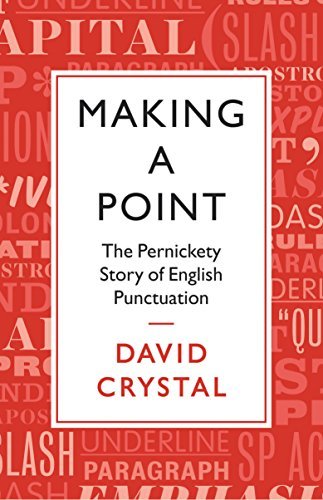What do you think?
Rate this book


Behind every punctuation mark lie a thousand stories. The punctuation of English, marked with occasional rationality, is founded on arbitrariness and littered with oddities. For a system of a few dozen marks it generates a disproportionate degree of uncertainty and passion, inspiring organisations like the Apostrophe Protection Society and sending enthusiasts, correction-pens in hand, in a crusade against error across the United States.
Professor Crystal leads us through this minefield with characteristic wit, clarity and commonsense. He gives a fascinating account of the origin and progress of every kind of punctuation mark over one and a half millennia, and he offers sound advice on how punctuation may be used to meet the needs of every occasion and context.
405 pages, Kindle Edition
First published September 17, 2015
When we talk about punctuation as a system, we mean that, at any one place in a written discourse, a choice has to be made from the set of options the language makes available.
“I recall one youngster (age about seven) who put a full stop at the end of every line of his story, regardless of sense. Another who put one between each word of the story title. Yet another had a fascination with semicolons. When I asked her why she used them so much, she replied that she liked the size and that they were pretty. And when I suggested a full stop was the normal way of ending a sentence, she looked very dubious, and observed that if you wanted to show something had come to an end, then surely the bigger the better?”
“And if you were in the habit of using the Shorter Oxford Dictionary, and had internalized its recommendations, you would have had a real shock in 2007, when the sixth edition was published and you saw that around 16,000 items had had their hyphens removed. Most of the changes had the hyphen replaced by a solid setting (pigeon-hole > pigeonhole, cry-baby > crybaby, bumble-bee > bumblebee), but quite a few ended up spaced (test-tube > test tube, ice-cream > ice cream, hobby-horse > hobby horse). Reactions ranged from the hysterical to the bemused. Some observers called it ‘hyphengate’.”